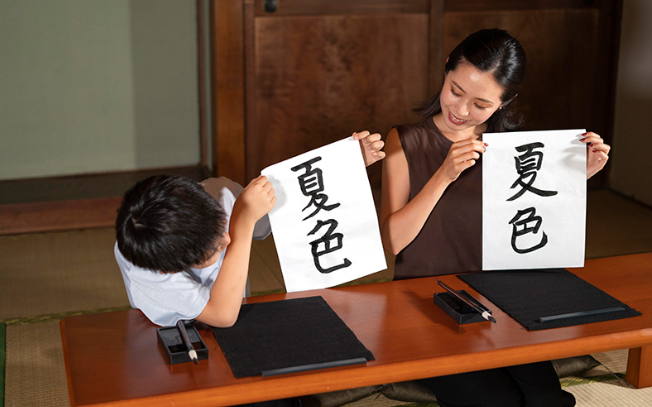Children’s brains absorb languages rapidly in their early years, making preschool a crucial stage to begin Chinese tuition. At this age, learners are not bound by preconceived language structures, allowing them to develop natural pronunciation and intonation more effortlessly. Preschool Chinese tuition takes advantage of this developmental window, immersing students in the language while their minds are still flexible and curious. As a result, their listening and speaking abilities mature quickly, forming a strong base for future reading and writing.
It promotes interest in cultural learning
Language and culture are inseparable. By participating in a Chinese enrichment class for preschool, children are introduced to songs, stories, and traditions that spark their curiosity about Chinese heritage. This early engagement encourages a positive attitude towards learning Chinese and nurtures an emotional connection with the language. Over time, this cultural familiarity can influence children to value bilingualism and continue exploring the language with enthusiasm as they move into primary education.
Reinforces structured thinking and memory
Learning Chinese involves recognising complex characters, understanding tonal variations, and constructing meaning from visual and auditory cues. These activities stimulate brain functions related to memory, pattern recognition, and problem-solving. Preschool Chinese tuition introduces these elements gradually, allowing young learners to practise structured thinking early in life. This cognitive stimulation lays the groundwork for academic performance in other subjects, as students apply the same analytical mindset in mathematics, science, and logical reasoning tasks.
Builds confidence before primary school
Many children face academic anxiety when transitioning to formal schooling. When children have already been exposed to the basic Chinese language, they approach primary Chinese tuition in Singapore with greater ease. Early tuition develops vocabulary, comprehension, and familiarity with classroom routines. This advantage not only supports smooth academic adjustment but also boosts the child’s confidence in their language abilities. Confident learners are more likely to participate actively and stay motivated through their learning journey.
Supports bilingual proficiency for the national curriculum
In Singapore’s education system, bilingualism is a core requirement, and Chinese is one of the official Mother Tongue languages. Starting tuition during the preschool years equips children with a head start in mastering the language in line with Ministry of Education standards. When students enter primary Chinese tuition in Singapore, they are better prepared for structured lessons, dictation, and oral assessments. This preparation increases their ability to perform well academically throughout their school life.
Addresses learning differences early
Each child absorbs information differently, and early tuition can help identify how a child responds to language instruction. Teachers in preschool Chinese tuition classes often use games, visual aids, and group interaction to assess individual strengths and challenges. Identifying these early allows for better-targeted teaching strategies. When difficulties are addressed during the preschool stage, learners are more likely to overcome them before entering the more rigorous demands of the primary curriculum.
Encourages parental involvement
Institutions for preschool tuition often include interactive learning tools such as take-home worksheets, songs, and storytelling assignments that invite parental participation. Parents who engage with these materials reinforce what the child learns in class, creating a more cohesive learning environment at home. This shared responsibility fosters a supportive atmosphere for language development and strengthens communication between parents and educators. With consistent guidance, children are more likely to maintain interest and make steady progress.
Lays the groundwork for PSLE readiness
Although the Primary School Leaving Examination (PSLE) seems far off during preschool years, building a strong foundation in Chinese early on makes future preparation less stressful. The progression from basic vocabulary and sentence patterns in preschool to advanced comprehension and oral skills in primary school becomes more natural. A child who starts early builds familiarity with the language incrementally, making it easier to handle the expectations of PSLE Chinese later on without last-minute cramming or undue pressure.
Enhances overall communication skills
Chinese tuition at the preschool level does more than teach vocabulary—it trains children to express themselves clearly, listen actively, and interact socially. These communication skills benefit them in all areas of life, from classroom discussions to peer interactions. The enthusiasm acquired in the mastery of language leads to improved articulation and awareness. These soft skills are invaluable for lifelong learning, helping children thrive not only academically but also personally.
Sets the tone for a growth mindset
Children who experience success and enjoyment in preschool tuition are more likely to develop a growth mindset. They begin to understand that learning is a continuous process and that effort leads to improvement. With language tuition forming part of their early education, they adopt habits like practice, perseverance, and curiosity. These qualities carry over into their attitudes toward other academic subjects and challenges later in life, setting them up for a lifelong love of learning.
For more information about lifelong language learning, contact Hua Cheng Education Centre today.

